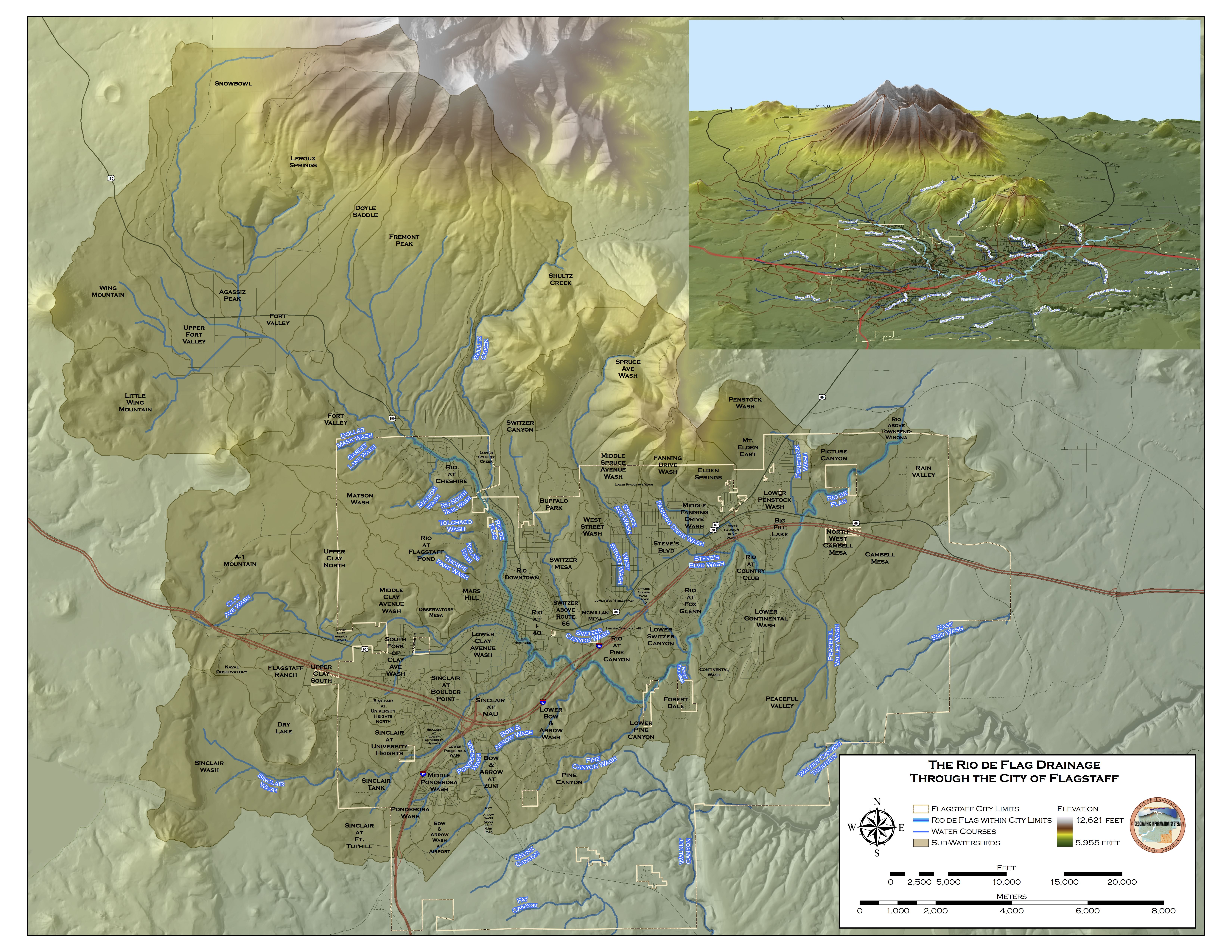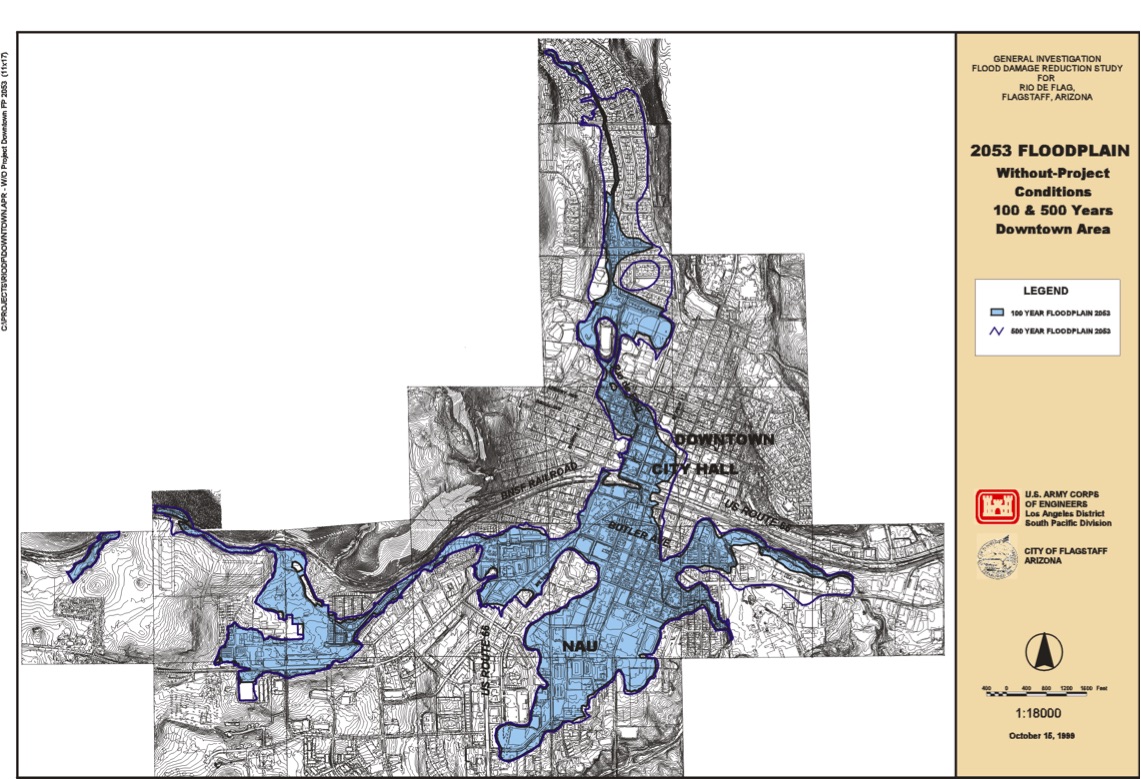Connecting state and local government leaders
Whether it’s sea level rise or a flood control project in her hometown, Mayor Coral Evans sees climate resilience and environmental sustainability as linked with social issues.
Editor’s Note: This is the second in a series of articles based on interviews with city officials at the 2017 Resilient Cities Summit. The National League of Cities, the Urban Land Institute, and the U.S. Green Building Council held the event in Stowe, Vermont, July 17 to 19.
Rising sea levels may seem like a remote concern for Flagstaff, Arizona, a city about 400 miles from the Pacific coast, surrounded by mountains and ponderosa pine forest.
But a discussion earlier this week about rising ocean waters nagged at Flagstaff’s mayor, Coral Evans. At issue for her was the idea that people now living in coastal regions could eventually be forced to move inland or uphill. “My very first thought was: who currently lives there?” she said, referring to the places where people might relocate.
“Most likely, you’re going to have people who are maybe more wealthy, who are currently doing the oceanfront property thing, they’re going to be looking to figure out where they’re going to go when they can’t live there anymore,” Evans added. “When they go higher up and inland, are they going to displace the people who are there?”
“It’s a question of equity.”
This scenario involving sea level rise that Evans described is in some ways similar to a situation unfolding in her community, a city of about 71,000 residents. Flagstaff is pushing ahead with longstanding plans for a flood control project on the Rio de Flag, a river that cuts through the city.

Around the early 1900s, as the timber and industry railroads drove growth in Flagstaff, the Rio de Flag was rerouted. While the river’s diverted path decreased flooding risks in some parts of town, it increased flood hazards for others—such as portions of the Southside neighborhood.

The pending flood control project would help to reduce the flood risks in the neighborhood, as well as in other parts of the city.
Here, too, equity considerations and questions about people getting displaced are in play.
Located south of railroad tracks that run through Flagstaff, the Southside historically, Evans said, “was a segregated neighborhood. Everybody who was nonwhite, that’s where you went to live.”
Among the audio archives in the Flagstaff Public Library Oral History Project is an interview recorded in 1976 with a resident named Anna Ryan, who arrived in Flagstaff in 1919. “We never had any flooding,” Ryan said, noting that her house was built near the river.
“But that south side,” she added, “where so many of the colored people are, that was always underwater.”
The heightened flood risk that has persisted in the Southside for generations has left property values in the neighborhood depressed compared to other parts of Flagstaff and has also created difficulties for people looking to improve their homes, according to Evans.
“You have not been able to access your property value,” the mayor said. “If you drive through this neighborhood, it literally looks like you’re in the 30s and 40s.”
Evans herself is a third generation Flagstaff resident and lives in a house her grandfather built in the Southside in 1942.
Her home is a couple houses away from the edge of the floodplain. But, she said, “when the floods come and the rains come, it’s actually been pretty high, where I’ve been kind of worried.”
Property values in Flagstaff fell after the Great Recession but have been recovering in recent years. Estimates from the real estate website Zillow show that the median value for all homes in the city was around $341,000 in June, up from $241,000 in June of 2012.
Evans pointed out that factors like natural features, initiatives to preserve open space, and a local boundary that designates where urban growth can occur, mean that there is only so much land in Flagstaff that can be developed.
Given that limitation, the prospect of the Rio de Flag project making parts of the Southside less flood-prone has sparked interest among real estate developers. The neighborhood is conveniently located close to downtown and Northern Arizona University’s campus.
The mayor and others have concerns that developers will offer low ball prices in, say, the $150,000-range for property that could actually be worth closer to $250,000.
So neighborhood groups are working on outreach efforts to ensure that Southside residents are informed about how much their homes are worth and what it would mean to sell them.
“It still might be you want to sell your house, which is fine,” Evans said.
The outreach touches on other considerations as well, according to Evans. “How do you turn that money over? What kind of account do you put it in? What kind of interest rate, where are you going? Let’s look at communities where you might want to move to.”
And it also involves reminding longtime residents that if they sell, they might not be able to afford another home in Flagstaff. And that could mean leaving behind social networks, like churches and bingo groups.
Planning for the Rio de Flag project continues to chug along.
It was 2004 when the city and the U.S. Army Corps of Engineers signed a cooperation agreement for the project. Design work began the following year and some minor construction was completed between 2009 and 2012. But the timeline for completion is unclear and hinges largely on when federal dollars become available.
Total costs, according to Army Corps figures, would be about $106 million. Congress reauthorized the project last year, but that doesn’t guarantee money will be appropriated.
Future construction is set to involve building both open channels and reinforced, underground box culverts to contain water from the river.
For now, the city remains vulnerable to hundreds of millions of dollars in estimated structural and economic damage in the event of a major 100-year flood.

Turning back to her thoughts on the sea level rise discussion, Evans said she believes conversations about how to make cities more environmentally sustainable and resilient to climate-related hazards are often too narrow—focusing heavily on topics such as infrastructure and how governments can cajole the private sector into supporting sustainability and resiliency goals.
“I think a key thing, that should be equally as important, that I don’t think we pay attention to, is the social aspect of sustainability and resiliency,” she said. “And I think the reason we don’t pay attention to it, is because it’s hard.”
PREVIOUSLY in this Route Fifty series:
Bill Lucia is a Senior Reporter for Government Executive’s Route Fifty and is based in Washington, D.C.

NEXT STORY: 'Elasticity' helps FDA move to cloud




